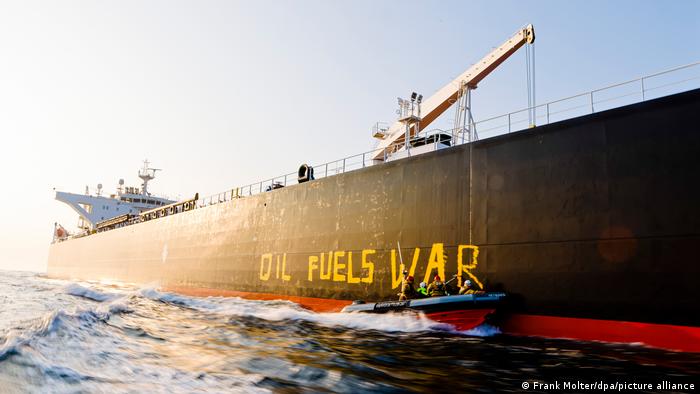Who should give up supplies? This is the question that must be asked when one day Russian oil will be given up. There are some ways to reduce consumption that do not hurt citizens so much.
The EU is considering the possibility of imposing an oil embargo on Russia. Some member states are able to cope without Russian oil, others do not. However the embargo will affect every country and the question arises: who gets less, if at all there is less to offer? Many countries, led by Germany, are looking for other alternatives, but that does not make much sense. Because if the quantity consumed remains the same, due to new suppliers, then prices will also remain high, which Putin should enjoy. Since the beginning of the war, EU countries have imported about 24 billion euros worth of oil from Russia.
It is therefore important to reduce the use of oil as a whole. “Nearly half of Europe’s need for Russian oil could be saved by 2023, and almost all by 2025,” said William Todts, chief executive of Transport & Enviroment, T&E, an organization dedicated to green road traffic. Oil, petroleum products, the product is mainly used for heating, diesel for traffic and energy production.In the EU 70% of oil is used for vehicles.
Mass concretely
 Since the beginning of the war, EU countries have imported about 24 billion euros worth of oil from Russia.
Since the beginning of the war, EU countries have imported about 24 billion euros worth of oil from Russia.
An easily applicable measure to reduce oil use is to limit the speed of vehicles. There is no speed limit on 70% of German motorways. About 2.1 billion liters of fuel could be saved annually in Germany, if the speed limit of 100km / h on highways is set. And if the speed limit is set at 30km / h in the inner city, then according to the German Ecological Organization, a total of 3.7 billion liters of gasoline and diesel spent on traffic could be saved. Other measures would be vehicle-free Sundays, incentives for using public transport and more homeoffice.
Electricity mobility in the medium term would also bring a lot of effect, according to T% E. This measure could reduce the demand for oil by 2023 by 38.8 tons of oil units, which corresponds to 48% of oil consumption for European vehicles. This measure has an effect especially if it is aimed more at vehicles with high mileage, e.g. firm vehicles, taxis, buses, transport vehicles. Another measure relates to air traffic and reducing kerosene use. If many countries would take France as a model, which has banned short-haul flights and offered to use the train for this, then 2 billion euros in oil imports from Russia could be saved annually. This is what a Greenpeace analysis says. This organization also demands the ban on empty flights. These are flights, with empty or half-filled aircraft, used by airlines to obtain flight rights. Last year, according to Greenpeace last winter there were 100,000 such flights that spent 360,000 tonnes of kerosene.
Reducing taxes does not help
Measures to reduce the price of fuel due to rising overall energy prices would not help reduce oil consumption. However on Friday in the Bundestag can be discussed the plan that in the next three months of summer, the energy tax that was imposed as an additional tax on fuel be reduced to the European level. According to T&E, if petrol and diesel become cheaper, no incentives are created to save, on the contrary. The measures taken by 18 European countries with the reduction of taxes on fuel since March have led to an increase in oil use to 3.3 million tons more.
So there are several possibilities on how to reduce oil consumption. While in the EU it is still debated whether the imposition of an embargo on Russian oil is possible. The EC proposed an embargo on oil within six months of this year and on refinery products by the end of 2022 – Germany in such a case would be less affected, because it has managed to quickly reduce its dependence on Russian oil. If last year about a third of the oil came from Russia, currently Russian imports make up only 12%. The situation is different in Slovakia, Czech Republic, Bulgaria. In total 25% of the oil used in the EU comes from Russia.



